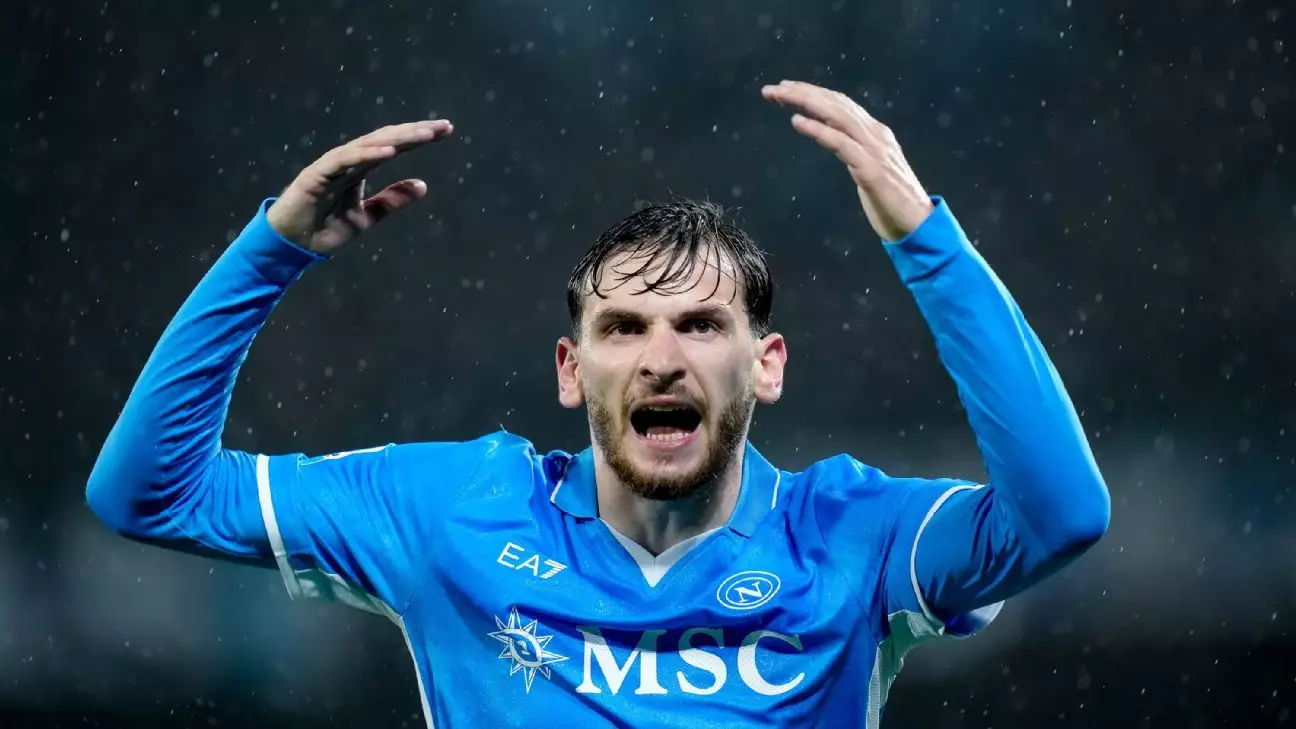As Paris gears up to welcome Khvicha Kvaratskhelia into its vibrant footballing landscape, the excitement is palpable. Even before the official announcement of his transfer from Napoli, PSG fans were already donning jerseys emblazoned with his name and number. This exuberance reflects a thirst for new talent—one that has been cultivated by the club’s previous high-profile signings, including Lionel Messi and Neymar. The expectation is that Kvaratskhelia, affectionately known as “Kvara,” may inject fresh energy into a team that thrives on star power.
The 24-year-old Georgian winger arrives in Paris with substantial credentials. Signed for €65 million on a contract that spans four and a half years, Kvaratskhelia is not merely another addition to the squad, but a critical element in manager Luis Enrique’s reimagining of the Parisian attack. Despite the shadow cast by past legends, Kvaratskhelia brings his own flavor of flair and creativity—qualities that PSG has long coveted.
Kvaratskhelia’s tenure at Napoli demonstrated his immense potential and skill set, establishing him as a key player during his two seasons at the club. He initially arrived in Italy as an unknown talent, yet his blend of speed, agility, and tactical awareness allowed him to become a household name almost overnight. Achieving remarkable statistics, including 12 goals and 13 assists in 34 league matches, he was pivotal in steering Napoli towards their first Serie A title in 33 years—a feat many had deemed impossible.
These accomplishments have earned him the nickname “Kvaradona,” underscoring the lore associated with his time in Naples. He concluded his tenure there with impressive totals of 46 goals and 48 assists over 191 games—a clear testament to his capacity as a playmaker. This performance has set the stage for his transition to PSG, where the stakes are higher, and the expectations follow suit.
For PSG, the acquisition of Kvaratskhelia signifies a calculated move to recalibrate their attacking dynamics. The club had previously expressed interest in him but were unable to secure his services until now. While other potential transfers were dismissed, Kvaratskhelia was consistently viewed as the best strategic fit. Coach Luis Enrique sees him as adaptable—a player who can operate across various attacking positions, whether on the left wing, as a false nine, or even as an attacking midfielder.
In Enrique’s structured 4-3-3 formation, Kvaratskhelia’s skill set introduces much-needed versatility, allowing PSG to diversify their attacking approach. Unlike the previous reliance on the Hakimi-Dembélé axis, Kvaratskhelia adds an element of unpredictability that could leave defenses straining to adapt. With opposing teams now faced with multiple threats across the field, PSG’s overall interplay stands to benefit significantly from his skill.
While his debut may not come immediately—missing out on the encounters against Lens and Manchester City—there is an overwhelming sense of anticipation surrounding his first appearance at the Parc des Princes against Reims. The fans’ enthusiasm is expected to be electrifying, with many eager to embrace their new star.
Kvaratskhelia’s journey is not just about individual success; it represents an opportunity to contribute to PSG’s ambitions on both the domestic and European fronts. As a player who is willing to work hard and learn, he has all the attributes to help PSG reclaim their status as a dominant force in European football. Kvaratskhelia seeks to carve out a new legacy within such a storied club, where past legends have paved the way, and new heroes are constantly being born.
The arrival of Khvicha Kvaratskhelia marks a significant moment for Paris Saint-Germain. His blend of talent, work ethic, and adaptability could propel the club to new heights, rekindling the excitement that PSG fans have come to expect. The challenge is immense, but with the unrelenting support of the Parisian faithful, Kvaratskhelia may well become the next beacon of hope in the illustrious narrative of PSG football.

